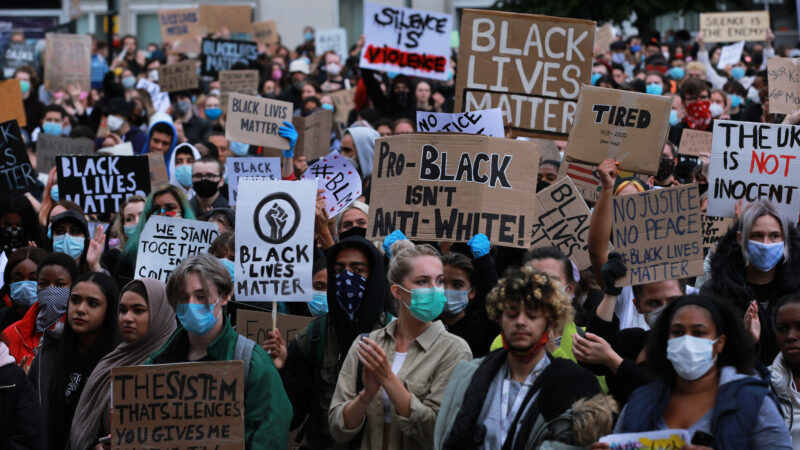A parliamentary committee ruled they had not responded properly to anti-racist campaigners.

A cross-party parliamentary committee has accused the government of failing to adequately respond to three anti-racist petitions, inspired by the Black Lives Matter movement.
Parliament’s petitions committee said the government did not directly respond to petitions calling for school pupils to be taught about Britain’s empire and slave trade, BAME history and anti-racism.
Between them, the three petitions had 366,000 signatures. Parliamentary rules state that the government must respond to any petition with over 10,000 signatures .
The most popular petition with 260,000 signatures said: “Now, more than ever, we must turn to education and history to guide us. But vital information has been withheld from the people by institutions meant to educate them.”
“By educating on the events of the past, we can forge a better future. Colonial powers must own up to their pasts by raising awareness of the forced labour of Black people, past and present mistreatment of BAME people, and most importantly, how this contributes to the unfair systems of power at the foundation of our modern society.”
The government responded: “The history curriculum at Key Stage 3 includes the statutory theme “ideas, political power, industry and empire: Britain, 1745-1901”. Topics within statutory themes are chosen by schools and teachers.”
Considering the government’s response, the Petitions Committee they “felt that the response did not directly address the request of petition and have therefore written back to the Government to ask them to provide a revised response”.
The Petitions Committee is a group of 11 members of parliament – six of whom are from the governing Conservative Party.
In response to a second petition calling for education on diversity and racism to be on the school curriculum, the government said racism was “abhorrent” and it was making Relationships Education compulsory.
As part of Relationships Education, pupils would be taught to respect others. Teachers can also teach about racism in PSHE and Citizenship classes, the government said.
Again, the Petitions Committee said that the response did not directly address the request of the petition.
The third petition said the curriculum should include more Black Asian and Minority Ethnic (BAME) history. It should include the impact of slavery, colonisation and racism as well as celebrating BAME history and cultures, the petition said.
The government responded: “The flexibility within the history curriculum means that there is the opportunity for teachers to teach about BAME history across a spectrum of themes and eras.”
It added teachers could talk about Mary Seacole and Rosa Parks in Key Stage One; non-European societies like the Ancient Egyptians in Key Stage Two and aspects of empire in Key Stage Three.
Again, the committee said the government did not directly respond to the petition. The government’s responses to petitions on ‘legal rights for ancient trees’ and the importation of shark fins were also recently not adequately responded to, the committee said.
In June, activist Ife Thompson told Left Foot Forward that the public is not aware of the intersecting histories of the UK and people of African descent. “We are doing a disservice to British history if we do not include and embed the narratives of Black people within it,” she said.
Joe Lo is a co-editor of Left Foot Forward
Left Foot Forward doesn't have the backing of big business or billionaires. We rely on the kind and generous support of ordinary people like you.
You can support hard-hitting journalism that holds the right to account, provides a forum for debate among progressives, and covers the stories the rest of the media ignore. Donate today.



